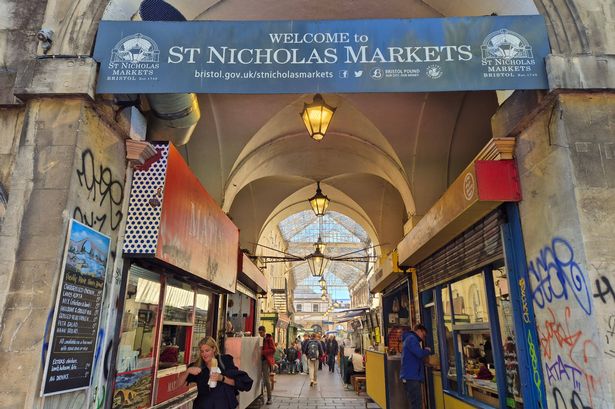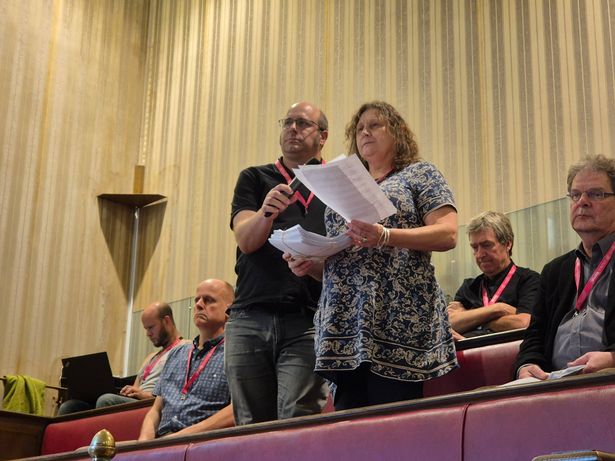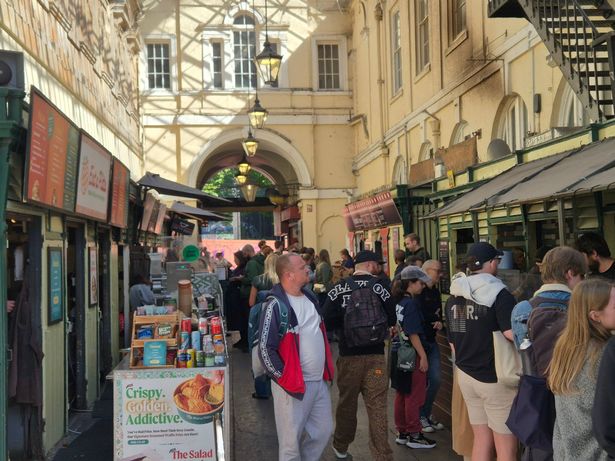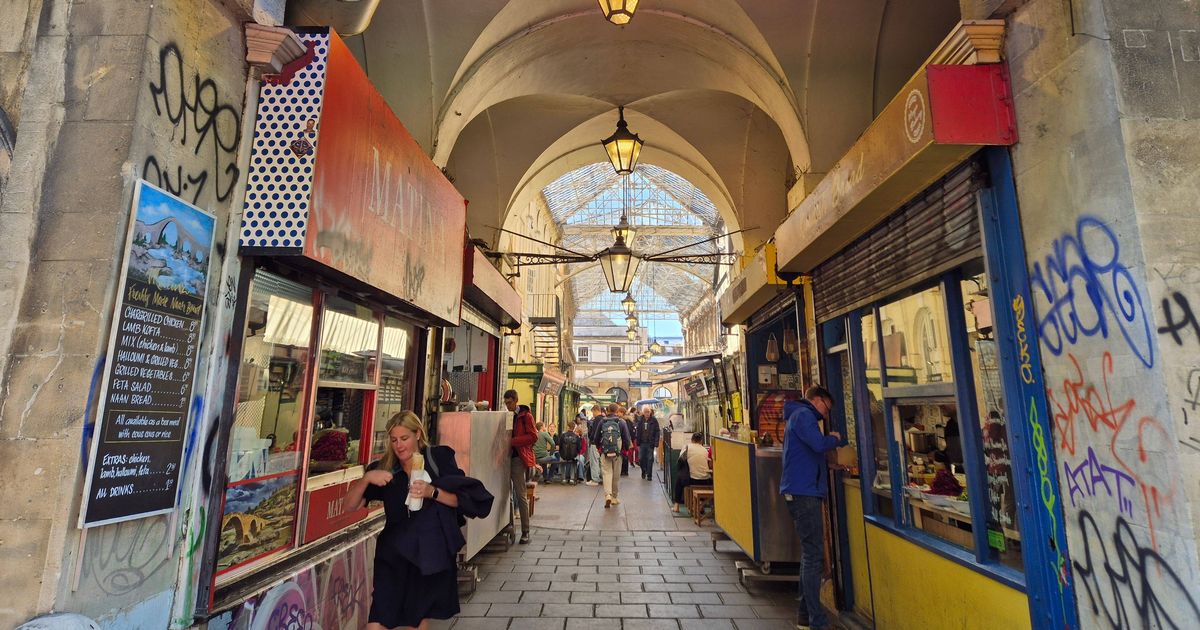Councillors chose to delay making a decision on how much they will increase market fees
18:17, 22 Sep 2025Updated 18:19, 22 Sep 2025
 Market fees at St Nick’s could soon increase(Image: Local Democracy Reporting Service)
Market fees at St Nick’s could soon increase(Image: Local Democracy Reporting Service)
Plans to hike the rent for traders at St Nick’s Market have been paused after traders warned they would go bust. Bristol City Council was proposing to increase the fees to trade at the popular city centre market, but this attracted fierce opposition from traders and the public.
Thousands petitioned the council to scrap the proposed fee hike, which “threatened the survival of many small independent businesses” and could lead to the “collapse of our unique and historic market”. Some traders would have seen their rents more than double.
The petition was signed by 5,820 people, including 3,435 Bristol residents, and was organised by Lynn Hanby, the secretary of the St Nick’s branch of the National Market Traders Federation. Speaking to the economy and skills policy committee on Monday, September 22, she pleaded for councillors to think again and protect the market, jobs and small businesses.
Ms Hanby said: “These rises were extreme and would fundamentally change St Nick’s, the heart of Bristol. Visitors celebrate its vibrancy and individuality, so different from the mundane chain stores everywhere. People don’t want a new shiny market filled with chain stores, they want this market, with the people who built it, who kept it alive, and who gave it its character.
 Lynn Hanby, the secretary of the St Nick’s branch of the National Market Traders Federation(Image: Local Democracy Reporting Service)
Lynn Hanby, the secretary of the St Nick’s branch of the National Market Traders Federation(Image: Local Democracy Reporting Service)
“Jobs and businesses will be lost in the first year. These are people’s livelihoods, not collateral damage. We ask you to hear the voices of Bristol, our visitors, and the traders who have dedicated their lives to this market, and their employees, whose livelihoods are also at stake.”
Andrew Keith-Smith, who owns the Beast T-shirt shop, added: “There is baffling reluctance on the part of the council to take advantage of substantial revenue opportunities available in the many unused parts of the market buildings or allow existing traders the opportunity to run their businesses the full-time hours the public rightly expect from retail and hospitality.
“Independent businesses provide a high level of employment per pound spent, and practically all their profits are reinvested in the local economy. Big business profits invariably disappear out of the local economy, and frequently offshore. St Nick’s is full of independent owner-operator businesses, however if this goes ahead they will be replaced by bland corporate businesses.”
The market makes a financial surplus for the council. The extra fees would not be invested back into the market, but would end up in the “black hole” of the council’s finances. Currently the council spends £613,000 a year on the market, and receives £672,000 in income from fees.
Liberal Democrat Councillor Andrew Brown, chair of the economy committee, said: “I regret not explicitly reaching out to you and would be willing to meet with you going forward. The challenge that we have is the balance of responsibilities as a landlord to tenants, and our broader responsibilities to the wider city to ensure all the council’s assets benefit the city as a whole.
“That includes the cultural aspect of attracting people to St Nick’s, but that also includes ensuring council tax payers of Bristol get a fair rate of return for the investment in the market. That’s the crux of the challenge that we have. It’s not the desire of this council to see St Nick’s flounder.”
But Anesa Kritah, head of economic development at the council, said her department was not hitting its income target. She added the fee hike would encourage traders to grow their businesses and move out of the market, into bigger spaces elsewhere in the city centre. Consultants hired by the council suggested that similar markets charge traders higher fees.
Initially the council suggested that traders should pay them a percentage of their turnover, such as 15 per cent of all takings. This would mean that for every lunch costing £9, the traders would have to pay the council £1.35. Nine in 10 traders responding to a consultation opposed this idea.
 The market is a popular spot for getting lunch(Image: Local Democracy Reporting Service)
The market is a popular spot for getting lunch(Image: Local Democracy Reporting Service)
Then the council proposed putting each trader into one of five zones, and basing their rent on footfall in those zones. And each zone would see a percentage increase, but this was still very high and traders warned could still put them out of business.
The proposals were opposed by Labour. Cllr Tom Renhard, leader of the Labour group, said: “Labour councillors cannot support these outrageous fee increases in their current form. Clearly it’s time for the council to go back to the drawing board. The council would be better off by exploring opportunities to expand the market’s opening hours.”
During the committee meeting, councillors agreed to pause the fee hike and come back at a later date. In the meantime, they pledged to consult with traders properly, and try to find a compromise rate at which fees will go up. It’s unclear what will happen next.
Speaking after the meeting, Ms Hanby said: “We’re not really sure what’s happening as a result of this. It seems some of the politicians are starting to listen a bit about what these rises would actually mean for Bristol. Maybe they’re starting to understand that they’re not affordable in their current form.
“They are hopefully going to look at some other solutions and talk to us. It’s exhausting and emotionally draining. Jobs will be lost in the first year as a result of this. Hopefully they’ll come up with a better plan.”
